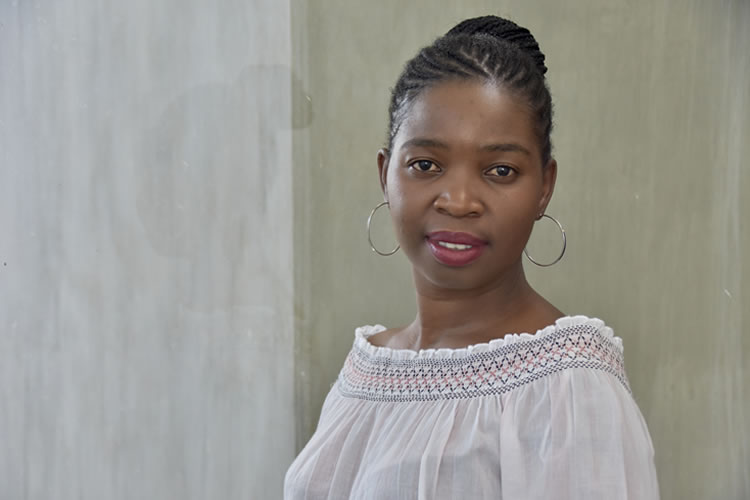The Centre for Human Rights, Faculty of Law, University of Pretoria stands in solidarity with the global community in observance of World Radio Day on 13 February 2025. This year’s theme, “Radio and Climate Change,” underscores the critical role that radio plays in disseminating essential information about climate change, one of the most pressing global challenges of our time.
World Radio Day was first proclaimed in 2011 by UNESCO member states and later endorsed by the UN General Assembly in 2013, recognises radio as an essential tool for accessible communication. The Centre for Human Rights acknowledges the resilience and transformative power of radio as a medium that transcends borders, connects communities, and promotes dialogue, particularly in addressing complex issues like climate change.
As the world faces the devastating effects of climate change, radio has emerged as a critical communication tool. In many regions, particularly in Africa, where access to information is often limited, radio continues to serve as a lifeline for disseminating vital information about climate change, adaptation strategies, and sustainable practices. Radio, with its broad reach and adaptability, provides real-time updates on weather conditions, environmental hazards, and disaster preparedness, especially in remote and underserved areas.
Climate change disproportionately impacts vulnerable communities, including rural populations, indigenous groups, and marginalised communities. Radio remains one of the most effective ways to communicate with these groups, offering them the opportunity to access timely information in their local languages, engage in community discussions, and voice their concerns about environmental challenges.
Through community radio, local voices are empowered to share their experiences and solutions in combating climate change. These stations, often operated in local languages, play an important role in amplifying grassroots efforts to tackle climate-related issues, from water scarcity to soil erosion. Radio stations can help bridge the knowledge gap between global climate policies and the lived realities of local communities. By providing a platform for community leaders, environmental experts, and affected populations, radio contributes to a more informed public dialogue on climate change.
Radio also helps raise awareness of climate change mitigation and adaptation strategies. For instance, small-scale farmers can be educated on sustainable agricultural practices that improve resilience to climate-related disruptions, while local communities can learn about disaster response and recovery efforts. In this way, radio serves not only as a tool for information dissemination but also as a catalyst for proactive climate action.
The Centre for Human Rights recognises that climate change is a global issue that requires global solutions, but these solutions should also be inclusive. Radio’s ability to reach diverse communities, including linguistic and cultural minorities, ensures that all segments of society can participate in the conversation about climate change. In line with Principles 11 and 12 of the Declaration of Principles on Freedom of Expression and Access to Information in Africa, which advocate for media diversity and independence, radio facilitates inclusive dialogue, ensuring that no one is left behind in the fight against climate change.
In rural areas, where digital infrastructure may be lacking, radio offers an accessible alternative to keep communities informed and engaged. By supporting local radio stations, governments and stakeholders can help build the resilience of communities that are most vulnerable to climate impacts.
While celebrating the potential of radio to inform, educate, and entertain, it is equally important to address the challenges posed by misinformation and disinformation in the digital age. The spread of false or misleading information about climate change can undermine public trust and delay critical action. Radio, with its credibility and widespread trust among listeners, should uphold the highest standards of journalistic integrity. Broadcasters should prioritise accuracy, fact-checking, and ethical reporting to ensure that the public receives reliable information about climate change and its effects.
In this context, radio plays a critical role in combating climate change misinformation, promoting evidence-based science, and empowering listeners to make informed decisions about their environment.
As radio continues to evolve with the rise of digital technologies, it faces new opportunities and challenges. The integration of online streaming, podcasts, and mobile apps has expanded radio’s reach and influence. However, the digital divide remains a significant barrier, particularly in rural areas and less developed regions, where access to the internet and mobile technologies is limited.
For radio to continue its critical role in climate change communication, stakeholders should work together to bridge this divide. This includes investing in the infrastructure necessary to ensure that rural and underserved communities have access to radio broadcasts, whether digital or traditional, that address climate change.
On World Radio Day 2025, the Centre for Human Rights calls on governments, media organisations, and stakeholders to continue investing in radio as a powerful tool for addressing climate change. This includes expanding the reach of community radio stations, supporting local voices, and ensuring that marginalised communities have access to climate-related information. By doing so, we can ensure that radio remains an integral part of the climate change conversation, empowering individuals and communities to take action and adapt to the challenges posed by a changing climate.
In line with the Declaration of Principles on Freedom of Expression and Access to Information in Africa, the Centre for Human Rights urges African states to adopt and enforce measures that promote media diversity, ensure free and independent radio, and promote inclusive communication platforms. These efforts will be crucial in enabling communities to confront climate change with the knowledge, resources, and solidarity needed to safeguard their futures.
As we celebrate World Radio Day under the theme “Radio and Climate Change,” we reaffirm the power of radio to inform, educate, and unite us in the global fight against climate change.
For more information, please contact:

Tel: +27 (0) 12 420 4199
Fax: +27 (0) 86 580 5743
Hlengiwe.Dube@up.ac.za


